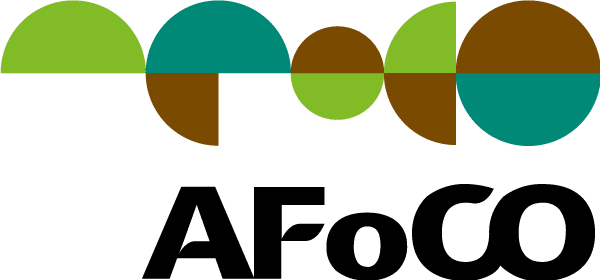As the world faces compounding challenges of climate change and pandemic risks, the international community continues its collective efforts to contribute to achieving Sustainable Development Goals. Although Asia is laden with rich forest resources, it remains highly vulnerable to the threats of climate change and forest devastation due to socio-economic growth pressures and natural disasters.
Asian Forest Cooperation Organization (AFoCO) is a treaty-based intergovernmental organization that promotes cooperation towards achieving the shared SDGs and regional and global forestry objectives. Through action-oriented practices, AFoCO aims to contribute to the global goals of increasing forest cover and implementing the Paris Agreement on climate change.
The Agreement on the Establishment of the Asian Forest Cooperation Organization (AFoCO) is registered with the Secretariat of the United Nations under Treaty Collection Number 55833 (Multilateral). AFoCO also became a Permanent Observer to the United Nations General Assembly and an ODA Eligible International Organization enlisted in the OECD DAC list.
Since the initial phase, AFoCO has been committed to facilitating the transfer and translation of best policies and experiences into site-specific actions where it is most needed. Through its member-driven approaches, various contextualized projects have been developed and implemented to achieve its mission.
These include promoting sustainable forest management practices, maintaining healthy ecosystem services, addressing climate change and its impacts through REDD+ initiatives, forest landscape restoration, and building resilience of forest and communities against forest-related disasters like forest fires. In over 30 project sites, more than 4,500 ha of forest have been is restored and managed. AFoCO has implemented participatory forest management for empowering local communities in 42 community forests in Member Countries, and overall. AFoCO programs and projects have also promoted ecosystem services in 8 model forests, contributed to livelihood improvements through forest-based activities in 46 villages, and strengthened the institutional framework of the members through supporting improvements of national forest policies and law
Vision & Mission
AFoCO envisions “A Greener Asia with climate-resilient and sustainable forests, landscapes and communities,” the achievement of which is supported by our mission to “Promote action-oriented international cooperation for creating enabling policies, building capacities, and fostering inclusive multi-level partnerships to drive Asian forests onto a climate-resilient and sustainable path”.
AFoCO will promote and undertake realistic action-oriented forest cooperation programs and projects to achieve its mission. In sustainable forest management, AFoCO works to rehabilitate degraded forest land and address prevent deforestation and forest degradation. It also explores common interests and positions among the member states as a unique intergovernmental organization in the forest sector.
Member Countries
Currently, AFoCO’s membership is composed 14 Parties including Bhutan, Brunei Darussalam, Cambodia, Indonesia, Kazakhstan, Kyrgyzstan, Lao PDR, Mongolia, Myanmar, Philippines, Republic of Korea, Thailand, Timor-Leste, and Viet Nam as well as 2 Observers, Malaysia, and Tajikistan.
| Country | Date of Membership |
|---|---|
| Bhutan | 27 April 2018 |
| Brunei Darussalam | 22 September 2018 |
| Cambodia | 9 September 2018 |
| Indonesia | 7 August 2019 |
| Kazakhstan | 4 October 2019 |
| Kyrgyzstan | 29 September 2022 |
| Lao PDR | 27 June 2019 |
| Mongolia | 31 July 2020 |
| Myanmar | 27 April 2018 |
| Philippines | 22 March 2019 |
| Republic of Korea | 27 April 2018 |
| Thailand | 26 July 2019 |
| Timor-Leste | 27 April 2018 |
| Viet Nam | 27 April 2018 |
| Country | Date of Membership |
|---|---|
| Malaysia | 24 March 2020 |
| Tajikistan | 13 October 2023 |
Partner Countries & Partner Organizations
The Assembly recognizes that the participation of various countries and entities complements the organization’s actions by providing access to new knowledge, expertise, financing and broad networks – resources that are critical to advancing the organization’s work.
Based on Decision 41-V-21R, Promotion and Enhancement of Partnership, Partner Countries and Partner Organizations provides new category of participation and engagement for AFoCO. The Sixth Session of the Assembly endorsed the Rules of Procedures for Partners Countries and Partner Organizations of the Asian Forest Cooperation Organization.
Institutional Arrangement
The principal organs of AFoCO are the Assembly and the Secretariat.
The Assembly is the policy-making body composed of the Representatives of all Parties. The Secretariat, headed by the Executive Director and located in Seoul, the Republic of Korea, is responsible for implementing its policies and strategies. Subject to guidance by the Assembly, the Executive Director enters into agreements on behalf of the organization for the implementation of activities of the Organizations.
Strategic Priorities
Initiating customized reforestation models
Research and development in climate change adaptation approaches
Introducing technology in managing forest-related disasters
Local livelihood improvement and community-based small enterprise development
Strengthening organizational capabilities and regional actions
Milestones
Adoption of the Agreement on the Establishment of AFoCO and preparations for its entry into force
2015Entry-into-force of the Headquarters Agreement between the Government of the Republic of Korea and AFoCO
Enlisted as an international organization eligible for Official Development Assistance (ODA) under the Organisation for Economic Co-operation and Development's Development Assistance Committee (OECD-DAC)
2021Convening of 2nd AFoCO Ministerial Meeting
Admission as an observer intergovernmental organization to the United Nations Framework Convention on Climate Change (UNFCCC)
Became an official Supporting Partner of the United Nations Decade on Ecosystem Restoration (UN Decade)
2022
